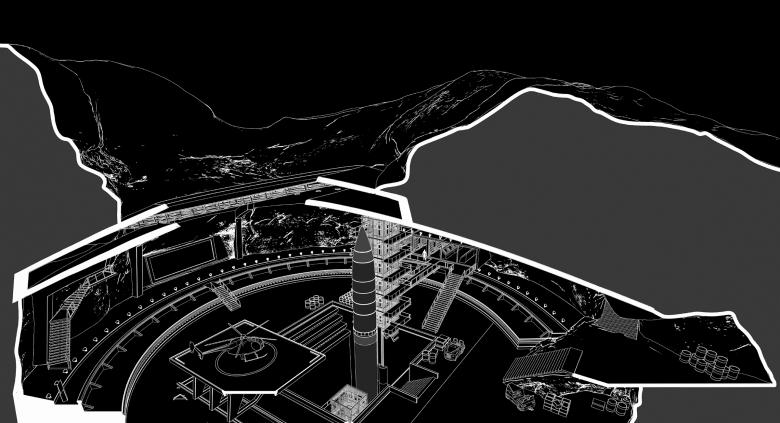2023 American Prize for Architecture to Chad Oppenheim
The Chicago Athenaeum: Museum of Architecture and Design and The European Centre for Architecture Art Design and Urban studies have announced that Miami's Chad Oppenheim is winner of “the highest honor for architecture in the United States.”
Specifically, Chad Oppenheim, who founded his eponymous firm in 1999, is the 2023 laureate of The American Prize for Architecture. He was given the award during a ceremony at The Arts Club of Chicago on the evening of December 13.
The American Prize for Architecture was established in 1994 and is given jointly by The Chicago Athenaeum and The European Centre to “an outstanding office and/or practitioner in the United States that have emblazoned a new direction in the history of American Architecture with talent, vision, and commitment and has demonstrated consistent contributions to humanity through the built environment and through the art of architecture.”
Christian Narkiewicz-Laine, president and CEO of The Chicago Athenaeum, describes Oppenheim's architecture in a statement as “subtle, powerful, elegant, and deeply romantic,” drawing attention to the firm's wide-ranging works in cultural, hospitality, residential, and planning throughout Asia, Australia, Europe and North and South America. “From the serene Jordanian desert to the lush Bahamas, he shapes buildings and places to achieve the optimal balance between creativity and pragmatism, function and experience, construction and aesthetics.”
Oppenheim Architecture has studios in Miami and Basel, the latter led by Swiss architect, and Oppenheim's former classmate at Cornell University, Beat Huesler. Although they are separated by an ocean and led by different architects, “the two studios operate as one,” according to the Oppenheim Architecture website, “guided by poetically contextual design, hyperfunctionality, and building craft.”
“[Oppenheim] believes that buildings and their environment should be deeply symbiotic, where projects ‘belong’ to their site and form follows feeling. Guided by three philosophical pillars — spirit of place, silent monumentality, and the essential — he has spent decades creating landmark architecture that is highly sensitive and responsive to its context and climate. Every fragment of his designs is essential — every line has a reason and every shape a purpose. Ideas are reduced to the elements and expressions that are truly significant, where the goal is to remove the extraneous, to enhance the meaningful. For example, in his plans for the Wadi Rum Desert Resort (2011) in Petra, Jordan, Oppenheim carved 47 individual dwellings into the sandstone rock surface, taking conservation measures like harvesting rain water in underground cisterns. The property engages and harnesses the surrounding desert land and showcases the designer’s dedication to sustainable practices and materials. In Petra, Oppenheim explores the potential of a site like archaeologists searching for the code that will unlock the vision of a project. The soil, the colors, the landscape, the winds, and the movement of the sun are all elements that are discovered, studied, and considered while shaping the design and, more importantly, the experience of a building.”
The importance of the Wadi Rum Desert Resort project mentioned by Narkiewicz-Laine is reiterated by it gracing the cover of Spirit of Place, the monograph on Oppenheim Architecture that was published by Tra Publishing in 2019. That same year, Tra put out Lair: Radical Homes and Hideouts of Movie Villains by Chad Oppenheim with Andrea Gollin. We called it “an extremely fun romp through fifteen films that are united by the incredible lairs of their bad guys, and are beautifully depicted through highly detailed architectural illustrations.”
Last year's recipient of The American Prize for Architecture was SHoP Architects and previous laureates include Norman Foster, Michael Graves, Adrian Smith + Gordon Gill Architecture, Form4Architecture, Kohn Pedersen Fox, Bernardo Fort-Brescia and Laurinda Spear of Arquitectonica, Eric Owen Moss, and Victor F. "Trey" Trahan.



